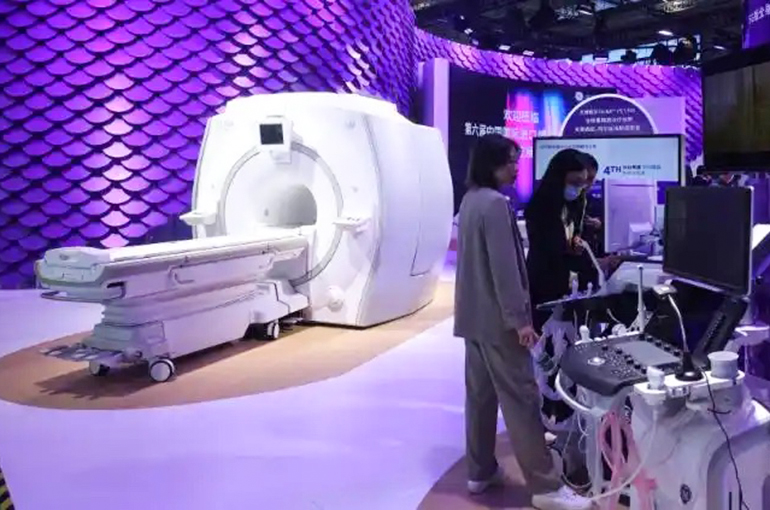 Medical Device Makers Turn to Local Parts Suppliers in China Amid Tariff Risks
Medical Device Makers Turn to Local Parts Suppliers in China Amid Tariff Risks(Yicai) May 16 -- Higher tariffs and global trade uncertainties are driving medical device makers operating in China to increasingly source components locally, bringing new opportunities for the industry.
Because of tariff risks, "medical device companies need to find key suppliers in China, which presents a good opportunity for us to enter the global supply chains of multinational medical equipment firms," Cheng Peifeng, founder of Yisheng Micro-Nano Medical Technology, told Yicai at a recent industry forum.
Yisheng Micro-Nano specializes in ultrasonic transducers and probes. The Wuxi-based company's newly developed 6F imaging interventional catheter is designed to guide precise surgical procedures. But with players such as Johnson & Johnson and Abbott Laboratories long dominating the market, Chinese suppliers have had limited market space.
“Competing with top overseas suppliers has always been challenging,” Cheng said. “But amid the concerns brought by trade frictions and the uncertainties, clients are considering high-quality local alternatives, which offers us new opportunities.”
As the prices of European and US-made computed tomography tubes increases, the resulting market gap will be filled by Chinese companies, said Jin Xin, general manager of Xinhong Electronics. “The better the quality of domestically produced substitute components, the stronger their competitiveness in the international market,” he noted.
Domestic and foreign end-device manufacturers in the Chinese market previously preferred to buy imported CT tubes, Jin pointed out.
The localization rate of low-to-mid-end CT tubes used in the Chinese CT equipment market was around 30 percent to 40 percent in 2023, while 85 percent of high-end tubes were imported, according to a brokerage analysis report.
However, Chinese companies should not be content with the market opportunities arising from the increasing tariffs, Cheng noted. "The determining factor for success or failure remains material and technological innovation, so domestic firms need to achieve competitive advantages via continuous innovation," he said.
Regarding the trend of overseas medical device giants, including GE HealthCare, Philips, and Siemens Healthineers, actively promoting localization in the Chinese market in recent years, Cheng said that is a key reason these giants have maintained a favorable position in China. "Otherwise, their domestic rivals will quickly catch up and surpass them," he pointed out.
Editors: Tang Shihua, Martin Kadiev